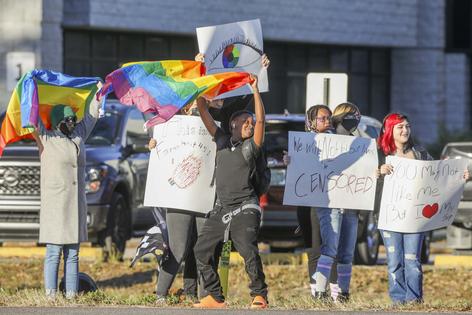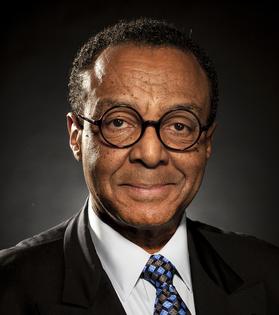Free speech is under assault, but we still need to talk
After witnessing Vladimir Putin brutally, yet routinely, assault basic freedoms in Russia and Ukraine, it is reassuring to think of free speech as alive and well in America.
Yet polls and recent news events show free speech to be under renewed assault here too, and often from both political sides.
Free speech disputes are hardly new in our Land of the Free but, inflamed by new media and clickbait propaganda, they certainly sound a lot louder and, too often, out of control.
Take, for example, the wave of televised school board meetings that turned rowdy over such seemingly simple questions as how we should raise our kids.
Although the furor over such issues as “critical race theory,” which isn’t even taught in public schools but energizes a lot of culture warriors, seemed to quiet down after November’s off-year elections, only to move to Republican-controlled state legislatures.
In just the first three weeks of 2022, more than 70 bills have been filed in 27 states seeking to regulate how and what educators may teach about race, history and sexuality in schools, according to an analysis by PEN America, a nonprofit group that promotes freedom of expression and calls the legislation “educational gag orders.”
Florida’s Republican Gov. Ron DeSantis has gained national attention and set himself up for a possible presidential bid by supporting a bill to ban discussion of sexual orientation or gender identity in the state’s lower grades.
Famously rebranded by critics as the “Don’t Say Gay” bill, its language is so ambiguous about such critical terms as “age appropriate” and “developmentally appropriate” that both sides argue about what it really means, which makes a lot of teachers increasingly confused and nervous.
At the college level, we have such cases as University of Illinois at Chicago law professor Jason Kilborn, who fell into hot water over a question on a final exam that he had been using for years. It contained slurs, self-censored with dashes as “n-----” and “b----,” by an imaginary woman of color in a pretend civil case.
The headline-making controversy led to his ouster, placement on leave for more than a year and a requirement to complete diversity training courses, according to his federal lawsuit. That’s too bad. Diversity education shouldn’t become a punishment, but instead of an opportunity for us to learn about one another in our diverse society.
“This is not a left versus right issue,” Kilborn told a Chicago Tribune reporter. “The issue is extremism.”
Indeed. If both sides are too busy expressing their passionate arguments to bother to listen to the other side, what’s the point of arguing?
More than any time that I can recall since the 1960s, the chaotic Jan. 6, 2021, assault on the Capitol seems to offer an extreme example of where we’re headed when being heard becomes more important than peacefully resolving disputes.
Yet in court, Jan. 6 defendants and some of their defenders, including the Republican National Committee, see the rioters as engaging in “legitimate political discourse,” partly in response to what they see as uncontrolled rioting in the streets by “cancel culture,” “woke” liberals” and Black Lives Matter on the left.
The left too often responds against “elites” on the right, even when it puts them at odds with the working-class voters who used to be the left’s strongest supporters.
But perhaps, as my millennial son said about peaceful resolution of such disputes, “That’s so last century, Dad.”
I hope not. The best response to offensive speech, according to a wise, old civil libertarian saying, is more speech. Unfortunately, today we increasingly see people on both sides breaking their own rules so much that it divides families and neighbors, confusing our ability to understand one another enough to find common ground, if there is any left.
Only 34% of Americans in a new national poll commissioned by Times Opinion and Siena College said they believed that all Americans enjoyed complete freedom of speech. An overwhelming 84% of adults said it is a “very serious” or “somewhat serious” problem that some Americans avoid speaking freely in everyday situations for fear of retaliation or harsh criticism.
As someone who offers my opinions for a living, I understand that fear. But in our diverse society, we still need to talk. Otherwise, how do we learn?
(E-mail Clarence Page at cpage@chicagotribune.com.)
©2022 Clarence Page. Distributed by Tribune Content Agency, LLC.
(c) 2022 CLARENCE PAGE DISTRIBUTED BY TRIBUNE MEDIA SERVICES, INC.










